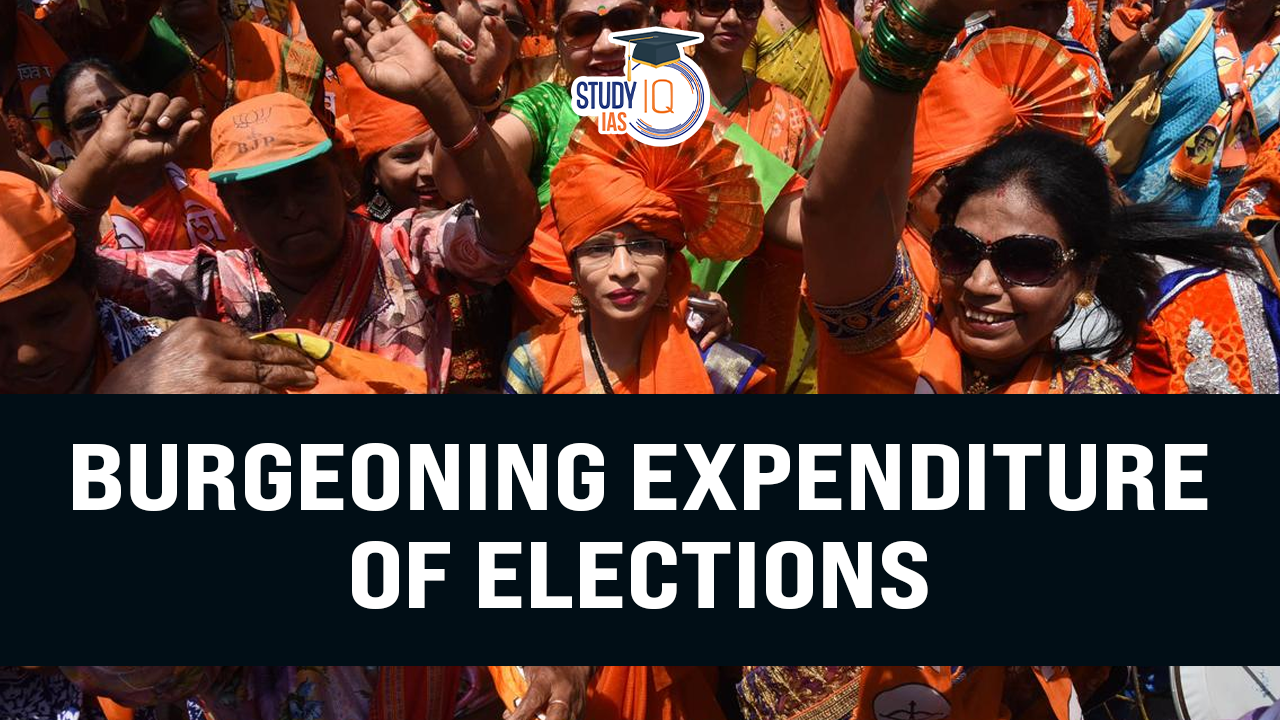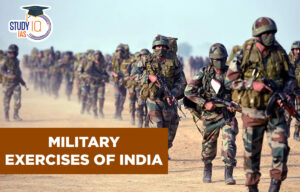Table of Contents
Context
The total expenditure by various political parties for the recent general election to the Lok Sabha in India was about ₹1,00,000 crores, according to the Centre for Media Studies (CMS).
Overview of Election Expenditure in India and the U.S.
- The upcoming U.S. presidential and Congressional elections in November 2024 are projected to cost approximately $16 billion (around ₹1,36,000 crores).
- In contrast, the total expenditure by various political parties for the recent general election to the Lok Sabha in India was about ₹1,00,000 crores, according to the Centre for Media Studies (CMS).
Legislation Governing Campaign Finance in India
- Representation of People Act, 1951:
- Candidates are required to maintain accounts of their election expenditures, but political parties do not have a similar obligation for promoting official programs.
- Political parties must disclose contributions exceeding ₹20,000 to income tax authorities and cannot accept donations from government companies or foreign sources.
- Election and Other Related Laws (Amendment) Act, 2003
- Introduced Section 29C, mandating political party treasurers to prepare annual financial reports detailing donations over ₹20,000.
- These reports must be submitted to the Election Commission before filing audited accounts with income tax authorities.
- Non-compliance results in disqualification from tax relief under the Income Tax Act.
- Other Legislations
- Companies Act, 1956: Limits corporate contributions to political parties to 5% of a company’s average net profits over the last three years.
- Foreign Contribution (Regulation) Act, 1976: Prohibits political organisations from receiving foreign contributions.
- Income Tax Act, 1961: Allows deductions for contributions to political parties and mandates annual audited accounts submission.
|
Election Expenditure Limits in India |
| ● For Lok Sabha:
○ ₹95 lakh per Lok Sabha constituency in larger States. ○ ₹75 lakh per Lok Sabha constituency in smaller States. ● For Legislative Assemblies: ○ ₹40 lakh for larger States. ₹28 lakh for smaller States. |
Challenges
- No cap on spending by Political Parties:
- No cap exists on political parties’ expenditures during elections.
- Reports reveal that the official expenditures declared by major parties, such as BJP (₹1,264 crores) and Congress (₹820 crores) for the 2019 elections, were significantly lower than actual spending estimates, which reached around ₹50,000 crores.
- According to a CMS report, approximately 35% of these funds were allocated to campaign activities, while 25% was unlawfully distributed among voters.
- Nexus and Barriers to Entry:
- The rising costs of electoral campaigns foster a problematic alliance between elected officials and donors seeking preferential treatment.
- This financial burden also serves as a significant barrier, preventing many well-intentioned individuals from entering the political arena due to a lack of resources.
Proposed Reforms
- Advocacy for State Funding:
- The Indrajit Gupta Committee (1998) and the Law Commission report (1999) have recommended state funding of elections.
- This would mean that the government partially covers election expenses for candidates nominated by recognized political parties. However, concerns remain regarding feasibility and implementation.
- Simultaneous Elections
- Simultaneous elections are proposed as a potential solution to rising election costs. While this approach may help reduce campaign expenditures, it faces challenges related to federalism and constitutional amendments.
- Moreover, without effective measures to curb illegal cash distribution among voters, simultaneous elections may not significantly impact overall election expenditures.
- Practical Steps for Electoral Reforms: The Election Commission’s report on proposed electoral reforms outlines several practical steps:
- Regulating Financial Assistance: Amend laws so that financial assistance from political parties to candidates falls within prescribed expenditure limits.
- Ceiling on Party Expenditures: Establish a ceiling on total party expenditures based on candidate limits multiplied by the number of candidates from that party contesting elections.
- Expediting Legal Processes: Appoint additional judges in High Courts for speedy disposal of election-related cases to deter violations of expenditure norms.


 Utkal Divas 2025: Odisha Foundation Day ...
Utkal Divas 2025: Odisha Foundation Day ...
 List of Military Exercises of India 2024...
List of Military Exercises of India 2024...
 GPS Spoofing and Its Impact in India: A ...
GPS Spoofing and Its Impact in India: A ...





















